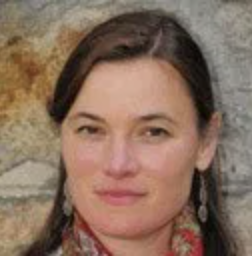Editor’s Note: Sustainable timber production will be a key theme of discussion at the upcoming Forests Asia Summit, 5-6 May in Jakarta, Indonesia. At the Summit, panelists will examine the experiences of government, international investors and producer associations, as well as research on furniture value chains, to understand how timber production can contribute to green growth in Southeast Asia through the sustainable use of natural and planted forests. Read more here.
Furniture makers in the district of Jepara in Central Java, Indonesia, have joined forces to create an association that has boosted incomes and helped secure the country’s first legal timber certification, opening an export corridor into Europe.
The outcome is the result of research aimed at strengthening the bargaining power and improving the livelihoods of small-scale furniture makers whose industry has been in decline since the 2008 global financial crisis and the impact of free trade in Asia.
“By joining an association, individual craftspeople discovered they were able to work more effectively with government and the private sector,” said Herry Purnomo, head of the Furniture Value Chain research project at the Center for International Forestry Research (CIFOR).
“They gained improved access to markets and bank credit, enhanced design skills and boosted furniture quality. The incomes of association members were 20 percent higher than the incomes of non-members.”
VALUED EXPORT
Wood furniture production is one of Indonesia’s main natural product exports, worth $980 million in 2012, and the primary source of livelihood for 5 million people on the island of Java.
Nationwide, 95 percent of furniture makers are employed in small- and medium-scale enterprises (SMEs). In Jepara alone — Indonesia’s historic center for furniture making and teakwood carving — 120,000 craftspeople work in the industry, with the value of furniture exports in Jepara reaching $120 million annually. However, SMEs obtained less than 5 percent of this value added.
The Jepara Small-Scale Furniture Producers Association (APKJ) has enabled members to negotiate better prices for their furniture, and to increase their orders locally, nationally and internationally, Purnomo said.
Jepara’s furniture makers have now attended more than 10 trade exhibitions, including several international events, learning how to sell their products and attracting new buyers
Association members have also benefited from government support and training to produce eco-labelled products from certified wood, adding value and opening up new market opportunities, Purnomo said.
CERTIFICATION BOOST
The association received Indonesia’s first collective timber legality assurance system (SVLK) license, a mandatory certification system agreed by the Indonesian government and the European Union for the export of Indonesian wood products into European markets.
Granted in July 2013, the license will also facilitate export into other markets that require environmental certification, such as to the United States and Australia, Purnomo said.
“In order for an organization to work, it needs to be useful to its members. The SVLK certification is proof that the association works,” he said.
“A healthy furniture industry also leads to more tree planting, and therefore a healthy teak plantation industry with environmental benefits including carbon storage and enhanced tree cover.”
Purnomo’s research paper — Value-chain dynamics: Strengthening the institution of small-scale furniture producers to improve their value addition — identified the study’s environmental sustainability and poverty eradication objectives as consistent with the “green economy” goals advocated at the Rio+20 summit in June 2012. These same goals are the subject of the upcoming Forests Asia Summit in May 2014.
IMPROVED INCOME
The association, which includes representatives from seven sub-districts in Jepara, was the result of a research approach that directly engaged the craftspeople, calling on them to identify and find solutions to the problems they faced, Purnomo said.
Members were encouraged to consider better integration with the entire furniture production “value chain” by working as furniture brokers or wood finishing companies, collaborating with wood traders and tree growers, or even to start growing their own teak, securing future supplies, the paper reported.
“A survey conducted as part of the research revealed a real economic benefit after joining the association,” Purnomo said. “A total of 78 percent of APKJ members had increased sales in 2012, versus only 44 percent of non-member producers.”
“Jepara’s furniture makers have now attended more than 10 trade exhibitions, including several international events, learning how to sell their products and attracting new buyers.” They have also improved the quality of their work through government-assisted training schemes, he said.
For further information about this research, please contact Herry Purnomo at h.purnomo@cgiar.org.
This research forms part of the CGIAR Research Program on Forests, Trees and Agroforestry and was supported in part by the Australian Centre for International Agricultural Research.
We want you to share Forests News content, which is licensed under Creative Commons Attribution-NonCommercial-ShareAlike 4.0 International (CC BY-NC-SA 4.0). This means you are free to redistribute our material for non-commercial purposes. All we ask is that you give Forests News appropriate credit and link to the original Forests News content, indicate if changes were made, and distribute your contributions under the same Creative Commons license. You must notify Forests News if you repost, reprint or reuse our materials by contacting forestsnews@cifor-icraf.org.















